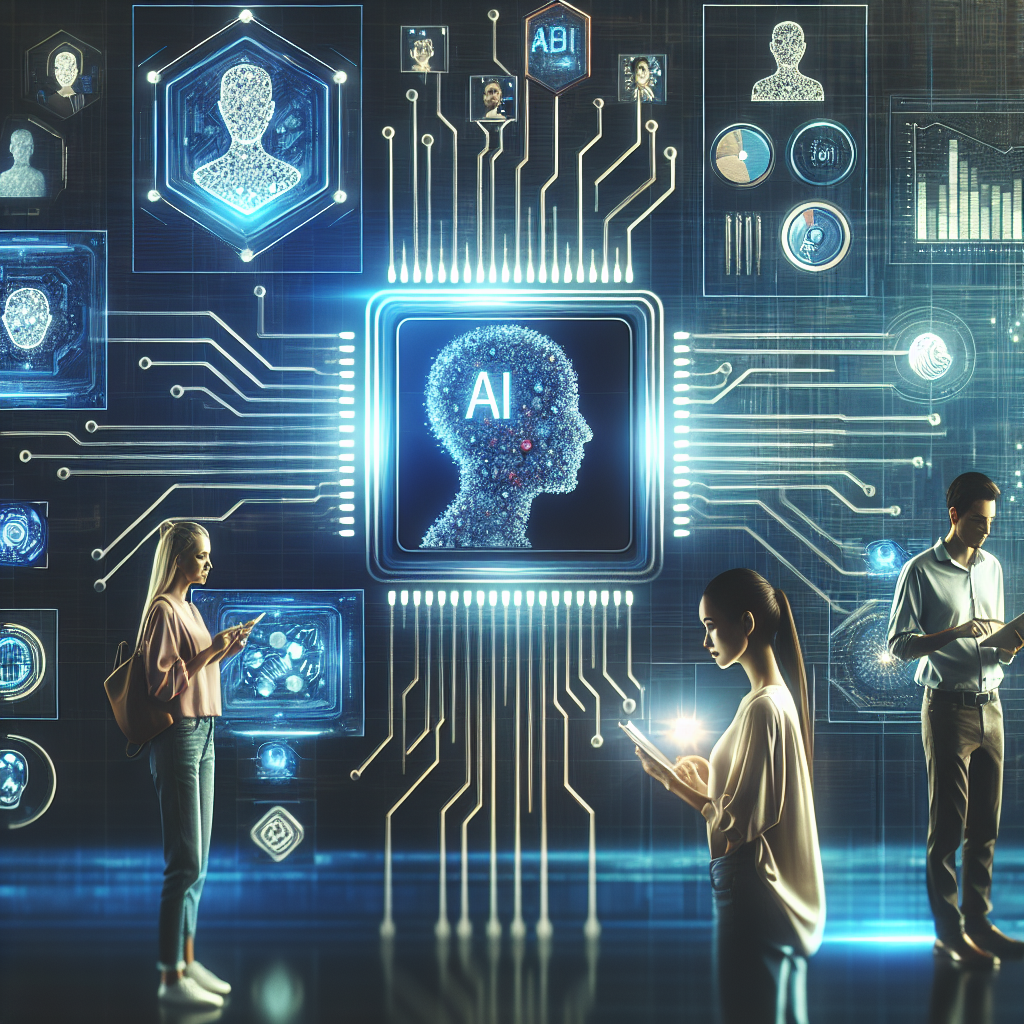In today’s digital age, the importance of personalized user experiences cannot be overstated. With the rise of artificial intelligence (AI) technology, businesses now have the tools to create more tailored and engaging experiences for their customers. Leveraging AI for personalized user experiences can help companies drive customer engagement, increase conversion rates, and ultimately boost their bottom line.
AI technology has the capability to analyze vast amounts of data in real-time and provide insights on customer behavior, preferences, and trends. This data can then be used to create personalized experiences for users, such as recommendations, targeted marketing campaigns, and customized product offerings. By leveraging AI, businesses can deliver the right message to the right person at the right time, increasing the likelihood of conversion.
One of the key benefits of leveraging AI for personalized user experiences is the ability to create dynamic and adaptive content. AI algorithms can analyze user behavior and preferences in real-time, allowing businesses to tailor content to each individual user. This can lead to higher engagement rates, as users are more likely to interact with content that is relevant to their interests and needs.
Furthermore, AI can help businesses optimize their user experience by predicting user behavior and anticipating their needs. For example, AI-powered chatbots can provide personalized recommendations based on a user’s browsing history or purchase behavior. This not only enhances the user experience but also increases the likelihood of conversion.
Another advantage of leveraging AI for personalized user experiences is the ability to automate and streamline the customer journey. By using AI to analyze customer data and behavior, businesses can identify opportunities to automate repetitive tasks, such as customer support inquiries or product recommendations. This not only improves efficiency but also frees up resources to focus on more strategic initiatives.
In addition to enhancing the user experience, leveraging AI for personalized user experiences can also help businesses gain a competitive edge in the market. By providing tailored and engaging experiences, businesses can differentiate themselves from competitors and build brand loyalty among customers. This can ultimately lead to increased customer retention and lifetime value.
However, despite the benefits of leveraging AI for personalized user experiences, there are also challenges and considerations that businesses need to be aware of. One of the key challenges is ensuring data privacy and security. With the increasing amount of data being collected and analyzed, businesses need to take proactive measures to protect customer information and comply with data privacy regulations.
Another challenge is the potential for bias in AI algorithms. AI algorithms are only as good as the data they are trained on, and if the data is biased or incomplete, it can lead to inaccurate or discriminatory outcomes. Businesses need to be aware of these risks and take steps to mitigate bias in their AI systems.
Furthermore, businesses need to consider the ethical implications of leveraging AI for personalized user experiences. While AI can provide valuable insights and recommendations, businesses need to ensure that they are using the technology in a responsible and transparent manner. This includes being transparent about how AI is being used, obtaining user consent for data collection and analysis, and providing users with the option to opt-out of personalized experiences.
Overall, leveraging AI for personalized user experiences can provide significant benefits for businesses, including increased customer engagement, higher conversion rates, and competitive differentiation. By understanding the potential risks and challenges, businesses can effectively harness the power of AI to create more tailored and engaging experiences for their customers.
FAQs:
Q: How can businesses leverage AI for personalized user experiences?
A: Businesses can leverage AI for personalized user experiences by analyzing customer data, identifying patterns and trends, and using this information to create tailored content and recommendations for users.
Q: What are some examples of personalized user experiences powered by AI?
A: Examples of personalized user experiences powered by AI include personalized product recommendations, targeted marketing campaigns, dynamic content, and AI-powered chatbots.
Q: What are the benefits of leveraging AI for personalized user experiences?
A: The benefits of leveraging AI for personalized user experiences include increased customer engagement, higher conversion rates, competitive differentiation, and improved efficiency.
Q: What are some challenges of leveraging AI for personalized user experiences?
A: Challenges of leveraging AI for personalized user experiences include data privacy and security concerns, potential bias in AI algorithms, and ethical implications of using AI technology.
Q: How can businesses mitigate bias in AI algorithms?
A: Businesses can mitigate bias in AI algorithms by ensuring that the data used to train the algorithms is diverse and representative, regularly monitoring and auditing the algorithms for bias, and implementing transparency and accountability measures.

